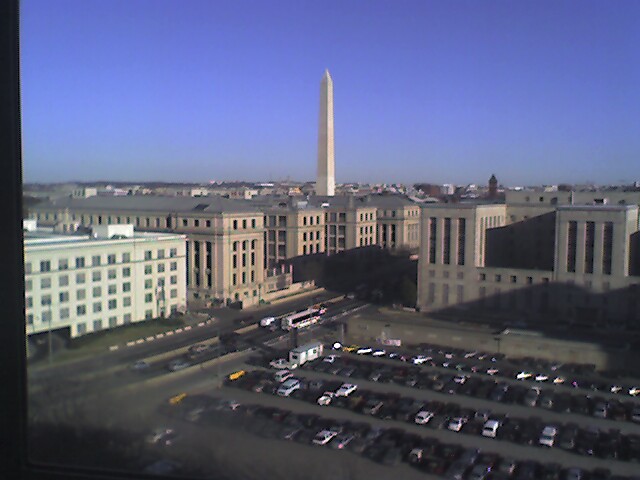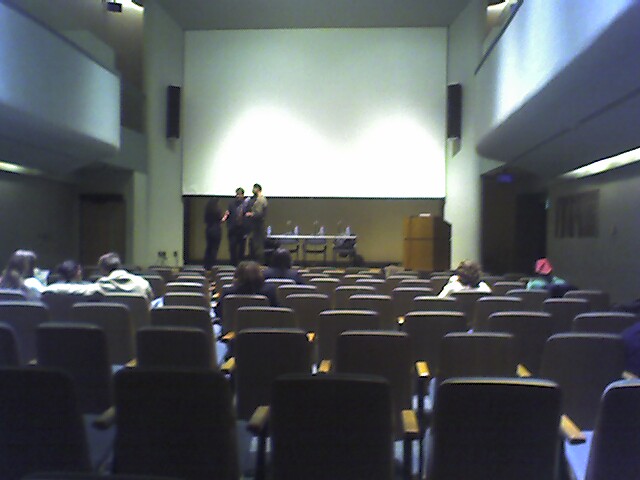ARTICLE: “Challenging change: why an ever fiercer battle hinders China’s march to the market,” by Richard McGregor, Financial Times, 28 February 2006, p. 11.
OP-ED: “The flight to Asian cities needs managing, not curbing,” by Victor Mallet, Financial Times, 28 Feburary 2006, p. 13.
ARTICLE: “Nigeria shifts to China arms: U.S. accused of failing to protect oil assets; Lagos turns to Beijing for military hardware; Pentagon ‘hot and cold’ on assistance,” by Dino Mahtani, Financial Times, 28 Febuary 2006, p. 1.
Fascinating piece in the FT by McGregor, probably the best thing I’ve read on change in China in the last year. Really lays out the battlefield between those who argue that the state needs to retain a larger role (otherwise China “changes its color” and risks too much rural tumult) and those who argue that the state’s still large role is the biggest obstacle to serious reform (that, and the artificial undervaluing of rural land that incentivizes local party leaders to reclassify land as “urban” so peasants can be thrown off and land valuation can skyrocket).
The Fourth Gen leaders, Hu Jintao (Pres.) and Wen Jiabao (PM) have staked their first (2002-2007) administration and presumably their second (2007-2012) on addressing the “caboose” that is the rural poor. They get their official stamp of leadership in next year’s Party Congress, but even more important about that congress will be the positioning of the next slate of leaders, the so-called Fifth Generation that was mostly educated in the U.S. (one standard bearer, Zhou Xiaochuan, governor of the People’s Bank of China, is already under attack [“Ominous undertones of an attack on reforms” on same page] from the economic hardliners who fear he’ll become PM in 2012).
Hu and Wen promise the New Socialist Countryside to deal with all that rural unrest, but in many ways, they swim against the vast tide that will not be stopped, and that is the continuing huge flow of Chinese humanity to the cities. China’s urban population was 11% of its total in 1949, but now it’s 43%, meaning China goes majority urban in the next few years. Remember when the U.S. did that around 1920? A lot of political and social and economic change ensued, including a huge revamping of our government to accommodate that reality. Same will happen with China.
Hu and Wen want to do some caboose braking on China’s development, making sure the rural poor don’t fall too far behind, but many economic observers say that more and not less privatization is needed to truly deal with that mass of largely disconnected humanity (almost a billion people, mind you), so China’s path is still very much under debate even as those who criticize the marketization process become increasingly marginalized politically and probably will largely disappear once the Fifth Generation types like Zhou start taking the reins within a few years (remember, once designated by next year’s Congress, the rise of the heirs apparent becomes one long tease that begins well before the actual assumption of power in 2012).
Meanwhile, expect the 4th Generation Hu and Wen to do whatever it takes to keep feeding the beast of rapid development, because the train, while accommodating some caboose braking, can’t possibly slow down without derailing. So expect China to continue to scour the world for resources, especially energy.
Our job? We need to move China toward some larger stewardship of the global economy and the global security system, otherwise we’ll bumble into stupid races with them inside the Gap for resources logically rendered fungible by global markets.
But alas, we have the Bush II Generation of Cold Warriors to move off the stage as well. Good news is, the new crews on both sides hit the ground around the same time: 2009. Will our side be ready?
 Friday, March 10, 2006 at 3:21PM
Friday, March 10, 2006 at 3:21PM 













